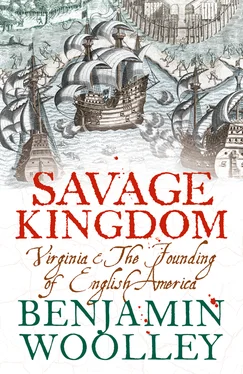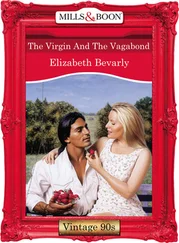By the summer of 1606, there were few signs of progress, and gloom about the project’s prospects intensified with news that the West Country group had managed to equip and dispatch a ship called the Richard in August, to reconnoitre a suitable place to settle in the region of Sagadahoc, Maine.
By the autumn, the pressure was intense. If an expedition was not dispatched soon, it would arrive in Virginia too late to plant crops to feed the settlement the following winter.
On or soon after 20 November, a meeting of the London Virginia Company was called at Smythe’s offices in Philpot Lane, an inconspicuous alley just north of Billingsgate, London’s fish market. Smythe’s Great Hall, decorated with souvenirs from his other trading ventures, including an Indian canoe suspended from the ceiling, was a hub of his various global trading interests, and was now inaugurated as the headquarters of the London company’s American venture.
There is no record of that meeting. All the relevant paperwork was later seized by order of the Privy Council, and it has not been seen since. 4 Nevertheless, it is likely that the motley crew of ‘principal adventurers’ that gathered together for the first time that day would not have inspired confidence, nor the final tally of resources that Smythe had managed to assemble.
Smythe had called the meeting because at last there were signs of progress. Three ships had been hired for the expedition, which were now ‘ready Victualled, rigged and furnished’ for the forthcoming voyage. The government had also decided upon the leadership of the mission, and issued the ‘articles, Instructions and orders’ finalizing the way the colony would be run.
The document specifying these crucial matters was not, according to later complaints, ‘so much as published’ by Smythe, who apparently kept certain key details to himself. However, he must at least have now delineated some of its main points. 5
The settlement in Virginia, the government had decided, would be run not by a single governor, but, as one settler later put it, ‘aristocratically’, by a local council. This council was to govern the settlement according to laws set down by the Royal Council for Virginia in England, with powers to adjudicate over ‘the offences of tumults, rebellion, Conspiracies, mutiny and seditions in those parts which may be dangerous to the estates there, together with murther, manslaughter, Incest, rapes, and adulteries’, defendants being given the right to be tried before a jury of ‘twelve honest and indifferent persons’. 6
The membership of the local council, Smythe revealed, would not be chosen by the adventurers, or the wider membership of the Virginia Company, but by the Royal Council for Virginia in England, from among those he had invited to the meeting. The identity of those nominated, however, would not be revealed until they had reached America. 7
This news must have prompted some speculative glances around the room, as each adventurer sized up those who might soon determine his fortune and fate. Those destined to go on the first mission were ‘strangers to each other’s education, qualities, or disposition,’ one participant noted. 8 Many were ‘cashiered captains’ in the afternoon of faltering careers, the average age being forty. Most would have described themselves as gentlemen of the Shires, members of a ‘middling’ class who, relative to their urban counterparts the merchants and lawyers, had not prospered in recent years.
The most senior was a 56-year-old veteran of the Irish and Low Countries campaigns, Edward Maria Wingfield. Of those about to sail, he was the only patentee, the only one whose name appeared on the Virginia Charter as one of the ‘humble suitors’ given permission to colonize North America.
To many, Edward Maria’s distinguishing feature was his middle name, which prompted the impressive explanation that it had originally been given to his father, in recognition of being godson to Henry VIII’s sister, Mary Tudor. Edward was the second of many generations to adopt the affectation, proudly showing off the family’s ancient lineage and royal connections. Some of his forebears had been loyal to Queen Mary, Henry VIII’s Catholic daughter, and were implicated in her suppression of Protestants in the 1550s. This has led to accusations that the family had Papist leanings. But another relation, Sir Edward Wingfield of Kimbolton, had taken part in the Essex Rebellion of 1599, usually considered a distinctly Protestant affair. There is no evidence that Edward Maria veered strongly in either direction. He seems to have adopted the religion of many conservative members of the gentry: pragmatic Protestantism, emphasizing social conformity over religious piety.
His father had died when he was seven, and aged 12 he became the ward of an uncle. When he was in his twenties, he studied law at London’s Inns of Court, but preferred soldiering, and served in the Low Countries. In 1586, he fought with distinction alongside his brother Thomas Maria at Zutphen, hailed by English Protestants as a landmark battle in the fight against Catholic oppression. Later, he was briefly prisoner of the Spanish along with Sir Ferdinando Gorges, who would later become a leading promoter of American colonization.
In the 1590s, Edward Maria had served in Ireland, where members of his family were leading English attempts to ‘colonize’ areas under Gaelic control. There he would have met Sir Ralph Lane, who had been governor of Raleigh’s ill-fated Roanoke colony, and it was perhaps from Lane that he developed an interest in colonial adventures further afield. 9
By 1604 he was back in England, and soon after became involved in the revived Virginia project, providing not only desperately needed financial support, but helping to secure the royal patent. He had also recruited some of the key personnel, including the mission chaplain, a 38-year-old Sussex vicar called Richard Hunt, and the ‘surgeon general’, Thomas Wotton. How he came to acquire such a prominent role so early on in the venture is unclear, but a decisive factor was likely to have been his family connection with the famous explorer and privateer Bartholomew Gosnold. 10
Gosnold had led the 1602 mission to Norumbega which had first challenged Raleigh’s Virginia monopoly. His return to England with profitable supplies of cedar wood and sassafras had also demonstrated the potential of North America as a source of natural commodities.
Since then, he and his shipmate, a silver-tongued lawyer called Gabriel Archer, had toured the taverns and company halls of London agitating tirelessly for a full-scale expedition, brandishing a persuasive tract written by Archer about their experiences of the ‘goodliest continent that ever we saw’. 11 Their efforts resulted in Gosnold later being described as the ‘first mover’ of the Virginia venture, 12 and attracting the valuable support of at least one prominent member of the Fishmongers’ Company. 13
However, Gosnold’s name had been conspicuous by its absence from the Virginia patent, and this seems to have been because it had become politically unacceptable. In 1604, a ‘Captain Gosnell’, probably Bartholomew, had made some intemperate remarks about King James at a dinner party held on the Isle of Wight. One of Cecil’s intelligencers happened to be among the guests, and he reported the remarks to his master, prompting a full-scale investigation by the Privy Council. No record remains of the council’s conclusions, but following such an episode, it was wise for someone bearing the Gosnold name to keep a low profile. 14 For this reason, Gosnold might have drafted in Wingfield as his proxy, the two families having connections going back generations. 15
By the time of Smythe’s November gathering, Gosnold was able to adopt a more public role in the venture, and had secured a place for Archer in the forthcoming expedition. But as he and Wingfield were now to discover, neither was to be trusted with the role of mission commander. That role was to go to the formidable 46-year-old, one-armed veteran of the Spanish wars who now joined them: Christopher Newport.
Читать дальше












